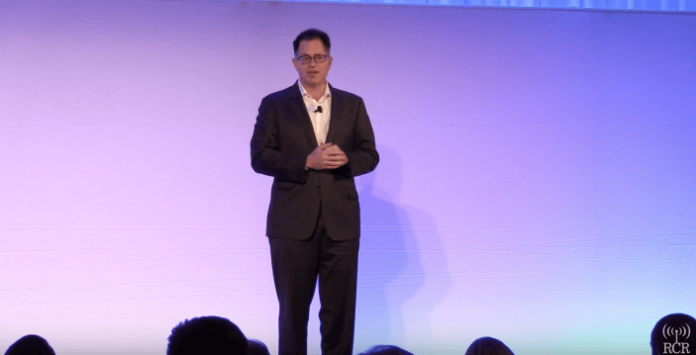AUSTIN, Texas –
This year’s Dell World opened with the buzz of Dell’s proposed $67 billion merger with IT giant EMC still ringing in everyone’s ears. The acquisition makes it clear the Austin, Texas-based company is all in on IT.
At the opening press conference, Michael Dell addressed questions about what the merger will mean to the PC-based business.
“We’re very excited about this combination. It gives us a world leading company in the four significant areas of IT today, in servers, storage, virtualization and PCs and it gives us an incredible position in the IT of tomorrow; digital transformation, converged infrastructure, the software-defined data center, hybrid cloud, security and mobile,” Dell said. “The combination also give us an incredibly strong go-to market engine with access to the world’s largest companies, as well as an incredible reach into small and medium sized businesses and emerging markets around the world.”
The new company is expected to have an $80 billion revenue stream moving forward. While Dell made it clear the company was still focused on its PC business, it was clear that the company believes virtualization and data infrastructure are the future.
“There’s also this move to virtualization and hyper-converged systems where the silos that had been built up in the second platform of IT are starting to go away and so it’s very important to lead in that next wave of IT and the combination of Dell and EMC give us a great leadership position,” Dell explained.
Subscribe now to get the daily newsletter from RCR Wireless News
Dell’s expansion is in stark contrast to one of its biggest rivals retraction. Hewlett-Packard has been laying off workers and restructuring its business while Dell continues to grow.
“We have a different viewpoint on how our company should evolve than HP does,” Dell said. “I think first of all, we think scale is important. I think that when you look at this industry the companies that have succeeded in the volume data center space have been attached to large PC businesses. … I also think that at the very moment there is an explosion in devices, not just PCs and smartphones all the embedded devices, the ‘Internet of Things,’ the connection between the device and the data center is very important.”
Dell also reinforced its “all-data strategy” with advancements in its big data analytics portfolio designed to help companies deploy predictive models that allow users to run analytics directly where the data lives for verticals such as banking, healthcare and insurance.
“I think companies are going to be measured by how able are they to take all this information and turn it into outcomes and success and the companies who are able to do that will be successful and be around and the other ones will go out of business,” Dell said.
The Internet of Things is another space where Dell is looking to gain greater footing with the launch of its Edge Gateway 5000 Series for Industrial IoT applications. The new gateway boasts an industrial-grade form factor, expanded input and output interfaces capable at operating at a wide range of temperatures.

